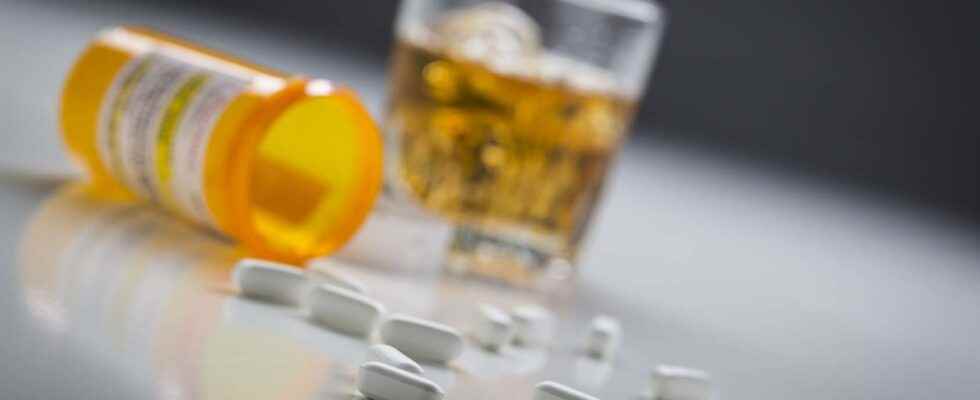An international group of researchers tested a hormone to reduce alcohol intake. Tests carried out on monkeys for the moment, but which could augur future trials on humans.
You will also be interested
[EN VIDÉO] How fast do you eliminate alcohol? From the digestive tract, alcohol passes very quickly into the blood, from where it quickly reaches the brain, with the effects that we know. The body, then, will metabolize the ethanol to feed on it. But this phenomenon is much slower…
It is estimated that 10% of French people consumealcohol everyday. If for the majority of them, this consumption is not pathologicalothers are addicted to alcoholic beverages. The treatment of this addiction is both psychological and medicinal. In the case of alcohol dependence, medications are intended to limit or discourage alcohol intake. A handful of molecules are marketed as baclofen or naltrexone.
A hormone implicated in alcohol addiction
An international group of researchers studies the effects of a hormone, FGF21 or the growth factor fibroblasts 21, on alcohol consumption. After promising results in mice, the scientists tested FGF21 in primates alcohol dependent non-humans.
The FGF21 hormone is synthesized by the liver and acts in brain to regulate thehomeostasis energy. Recently its role in the regulation of alcohol consumption has been put forward. Indeed, certain polymorphisms in the gene encoding FGF21 are associated with increased alcohol consumption.
A promising treatment in monkeys
The scientists administered an FGF21-like molecule to several highly alcohol-dependent green monkeys. The treatment reduced their alcohol intake by half compared to untreated animals. Monkeys first received a dose of 1 mg/kg for eight days, then a dose of 2 mg/kg for the following eight days. The positive effects of the treatment on alcohol intake appeared from the fifth day.
The action of FGF21 in the brain remains poorly understood, but the scientists’ work offers a first insight. FGF21 would act on a subgroup of neurons present in the basolateral amygdala, an internal region of the brain. The excitation of these neurons by FDF21 would reduce the desire to consume alcohol.
Before considering FDF21 or an analogue as a treatment for alcoholismthe understanding of its mechanism of action in the brain must be refined.
Interested in what you just read?
